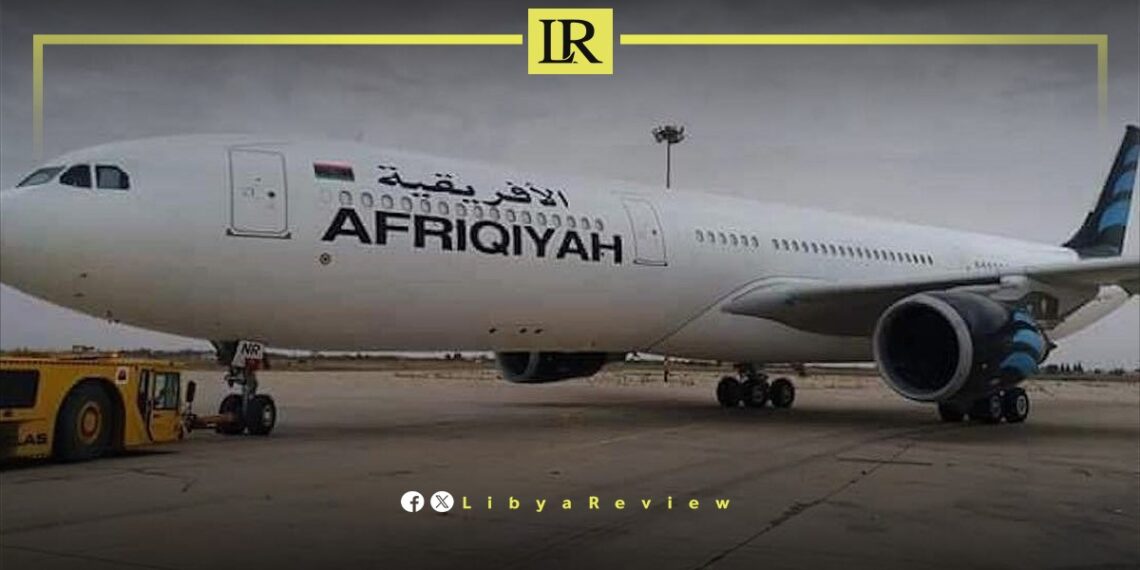Sebha Airport’s Director, Taher Al-Bousifi, met with the Head of the Government Office for the Southern Region, Ali Al-Hadi, to discuss ongoing preparations for the airport’s upcoming international flights.
The first flight will be directly to Alexandria Airport in Egypt on Saturday, operated by Afriqiyah Airways.
This marks the resumption of international flights after more than ten years of suspension.
On Friday, Afriqiyah Airways announced the historic flight of its 8U971 from Istanbul to Mitiga Airport, marking its first journey through Greek and EU airspace since the 2011 air travel ban on Libyan aircraft.
The airline highlighted that this new route would reduce the flight duration by an hour and cut operational and fuel costs significantly. This flight marks a significant advancement in operational efficiency, as stated by the airline.
On Thursday, Libyan Airlines also revealed that this change would save at least 3,100 kilograms of fuel per flight. The Airbus A330 will now traverse European airspace, specifically over Greece and Malta, enhancing both time efficiency and cost-effectiveness.
Libyan Airlines emphasized the benefits of this route adjustment. The flight time on the Istanbul-Tripoli sector will be reduced by about an hour, saving passengers’ time and improving operational efficiency. The substantial fuel savings will also bolster the airline’s cost-effectiveness.
The airline expressed its gratitude to the Ministry of Transport, the Civil Aviation Authority, the Air Transport Department, and the airline’s flight dispatch division for their efforts in reopening this vital air route.
Reopening European airspace for Libyan flights signifies a major milestone for Libya’s aviation sector. Since the 2011 civil war, Libyan airlines have faced numerous challenges, including restricted airspace access, security issues, and operational difficulties. The ability to fly through European airspace again is a crucial step toward normalizing operations and improving international connectivity.
This new route through Greek and Maltese airspace not only shortens flight times but also aligns with broader efforts to enhance the efficiency and sustainability of air travel. By saving approximately 3,100 kilograms of fuel per flight, Libyan Airlines can significantly reduce its carbon footprint, contributing to global environmental goals.


